Editor’s note: This story contains graphic and disturbing descriptions of violence.
Kyiv, Ukraine
CNN
—
Pastor Dmytro Bodyu said the Russians kept telling him they knew he was an American spy, specifically, a CIA agent paid by the US government to spread anti-Russian propaganda in occupied Ukraine.
“They said they knew for sure because all Protestant churches and Catholic churches are working with the American secret services, and all their pastors work for the US government, because the Protestant church is not a real church,” Bodyu, the founder of the evangelical Word of Life Church in Melitopol, told CNN.
Fifteen or so armed men, who said they were from the Russian police and FSB spy agency, stormed into Bodyu’s home early on March 19, 2022. They arrested him in front of his terrified wife and son and took him to a local police station where he said they shoved him into a small cell and threatened him with execution.
He was released eight days later, but the threats and harassment continued. Bodyu said he was given an ultimatum: to continue preaching, he’d have to cooperate. His sermons would be subject to censorship and observed by the authorities, and he would have to share personal and potentially compromising information about his parishioners with the Russians.
The pastor said that he refused and was eventually forced to leave the occupied southern Ukrainian city. His congregation was decimated and his church shut down as part of Russia’s brutal crackdown against Ukrainian religious groups that are not affiliated with the Russian Orthodox Church, also known as the Moscow Patriarchate.
Since launching its full-scale invasion of Ukraine in February 2022, Russia has jailed dozens of Ukrainian faith leaders in occupied areas, according to Ukrainian prosecutors. After threatening them with lengthy prison sentences, torture and even death, Russian and Russian-installed authorities have forced numerous other priests, pastors and imams into exile.
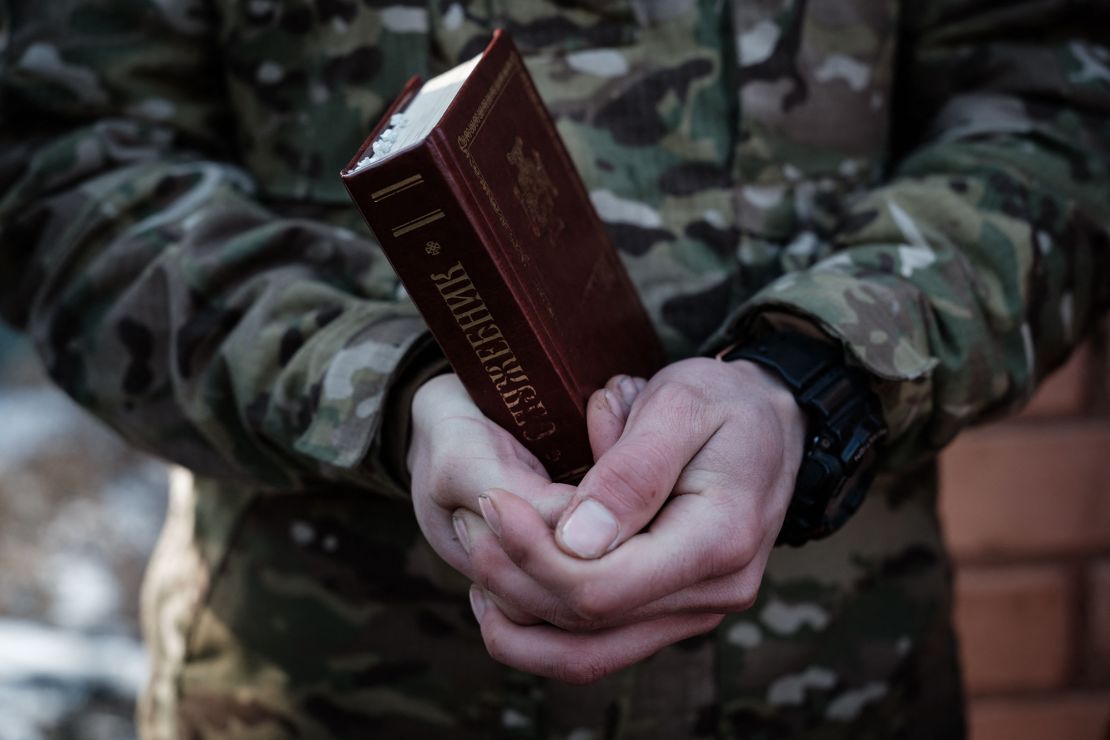
At the same time, Ukrainian authorities have become increasingly suspicious of anyone with links to the Russian Orthodox Church, arresting and convicting clergymen of spying for Moscow. US embassy officials, including the US ambassador to Ukraine, have urged the Ukrainian government and religious leaders to ensure respect for all individuals’ religious freedom.
CNN spoke to six religious leaders representing different Christian denominations across several currently or formerly occupied Ukrainian cities, including Melitopol, Berdiansk and Kherson, who were detained. They said Russian authorities accused them of being American spies or of spreading propaganda. Three described being physically abused, one of them sexually. All were told their religious affiliations were the reason for their detention.
The crackdown goes beyond people and congregations. Evidence found in liberated areas and seen in satellite images shows Russian forces have destroyed and looted multiple religious sites and desecrated monuments, churches and monasteries across occupied areas. The Centre for Information Resilience, a UK-based nonprofit that documents potential human rights violations, identified some 158 religious sites that were destroyed or damaged in the first two years of the full-scale conflict.

According to international legal experts and Ukrainian prosecutors, Russia’s religious persecutions in Ukraine amount to war crimes.
The Russian Defense Ministry, the government body responsible for the occupied areas of Ukraine, has not responded to CNN’s request for comment on the allegations.
Russia’s Crimea playbook
Bohdan Heleta, a priest of the Ukrainian Greek Catholic Church, spent more than 19 months in Russian detention after he and his fellow priest Ivan Levitsky were abducted by masked men with rifles from their parish in Berdiansk on November 16, 2022.
They were held in several detention facilities in Berdiansk before being transferred to the notoriously brutal Horlivka Penal Colony in the occupied Donetsk region where they ended up spending more than a year. They said they were accused of “conducting propaganda” and were repeatedly beaten and kept in solitary confinement. They had their hair and beards shaved off and were interrogated many times, with their tormentors trying to pressure them into cooperating with the Russian intelligence services.
“There were 1,500 to 2,000 people there, in barracks for 200 people each,” Heleta told CNN a few weeks after his release, adding that some had been detained for nearly three years. “Three times a day, at breakfast, lunch and dinner, you had to run through two rows of special forces who would beat you. In the dining hall, when you eat, they also beat you and shock you with electric current.”
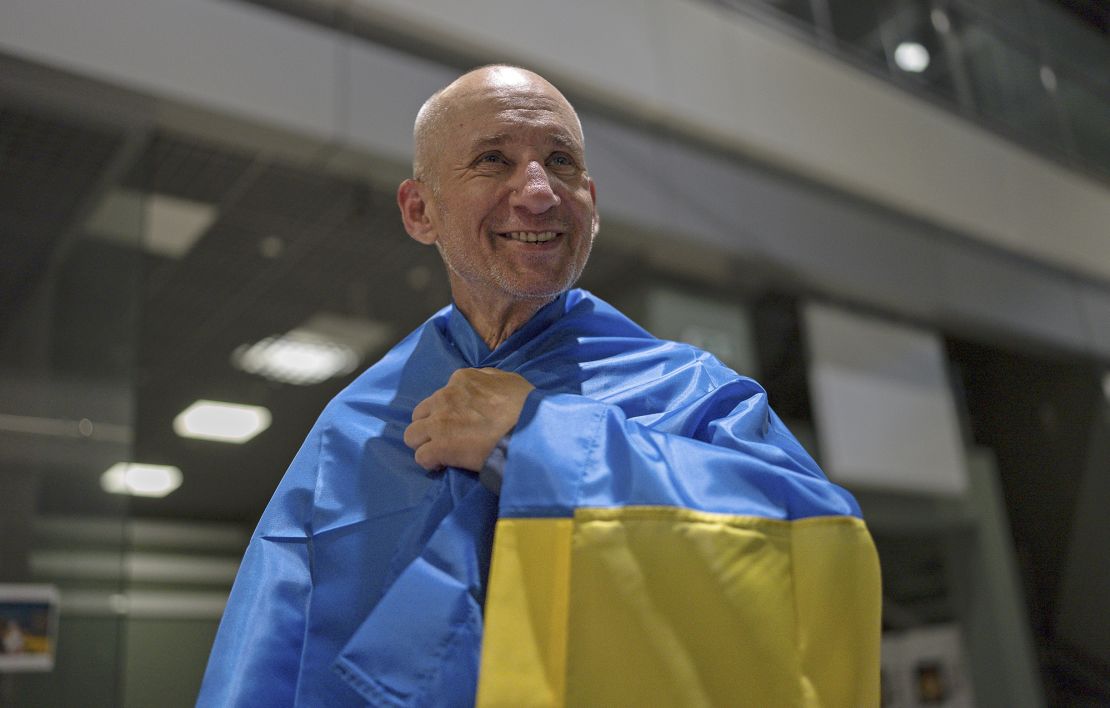
Heleta and Levitsky were freed in a prisoner swap in June. Neither was charged or convicted of any crime, which is common for many of the thousands of Ukrainian civilians who have been detained by Russia since the start of the war.
Maksym Vishchyk, a lawyer at Global Rights Compliance, a non-profit that advises the Ukrainian authorities on investigating and prosecuting international crimes, said Heleta’s experiences match those of other priests and religious leaders detained by Russia.
Earlier this year, Ukrainian authorities filed a complaint with the International Criminal Court’s Prosecutor’s Office alleging atrocities perpetrated by Russia against religious communities in Crimea. Vishchyk, who assisted the Ukrainians with the submission, said the evidence points to Russian policies amounting to “at least nine war crimes and seven crimes against humanity,” including depriving a person of fundamental rights based on their religious identity.
And while the submission focused on Crimea, Vishchyk stressed that Russia is carrying out the same abuses across the occupied Ukrainian territories – drawing from the playbook established in the peninsula since 2014 and doubling down.
“In Crimea, it was kind of gradual. In the territories occupied after February 2022, Russian tactics became bloodier and more violent,” he said.
‘Systematic, ongoing, and egregious violations’
The repressions against religious groups in Ukraine appear to be part of Moscow’s efforts to “Russify” areas under its control.
“Russia wants to eradicate anything Ukrainian. Remove any reminders of Ukrainian identity or Ukrainian history, and make the occupied territory Russian,” Vishchyk said. “This includes making Russian Orthodoxy the dominant mainstream ideology.”
Freedom of religion is severely restricted in Russia, despite guarantees in the country’s constitution and Russian President Vladimir Putin’s insistence that his country is a “multi-confessional” society. The most recent US State Department report into international religious freedoms said Russia has engaged in “systematic, ongoing, and egregious violations of religious freedom.”
While Russia has no official state religion, the law recognizes the “special role” of Orthodoxy in the history and culture of the country. And Putin has long made faith part of his brand, regularly turning to the church for support. The head of the Russian Orthodox Church, Patriarch Kirill, is one of Putin’s staunchest backers and a vocal supporter of the war in Ukraine.
While religion has become a major part of the war, the battle over Orthodoxy started long before the current full-scale conflict. Ukraine created its own independent Orthodox Church of Ukraine in 2018, splitting from the Moscow-affiliated Ukrainian Orthodox Church (UOC). Since then, religious affiliation has increasingly been viewed as a symbol of national loyalty.
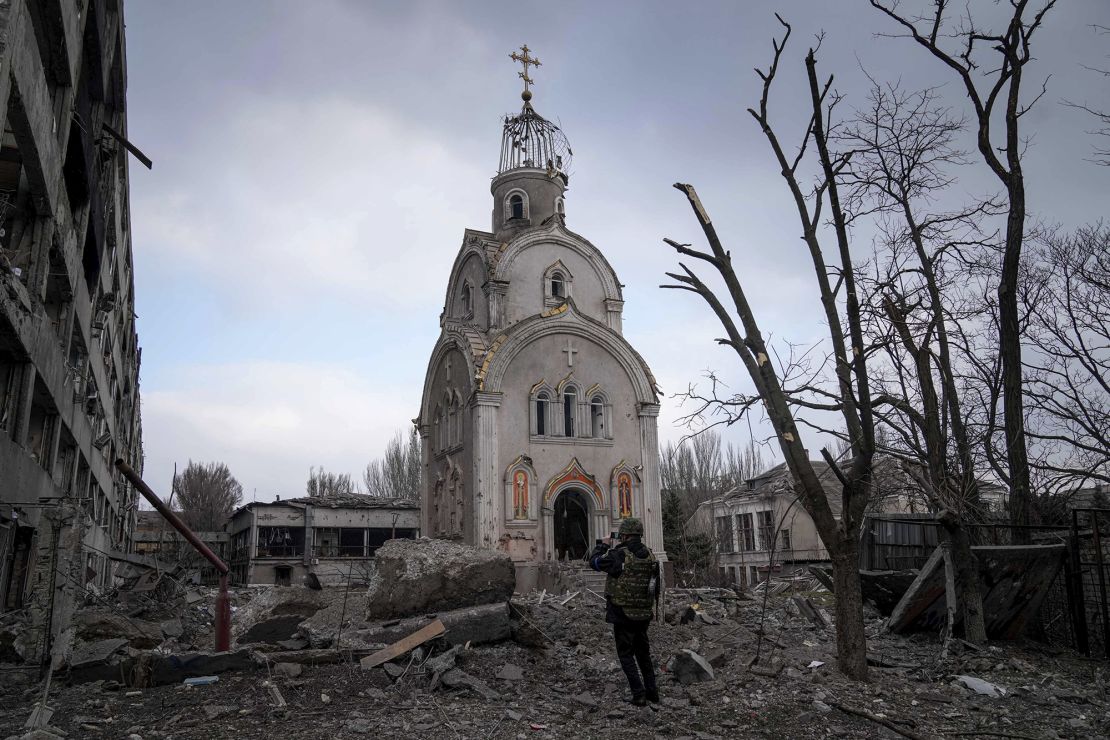
Ukrainian intelligence services have opened criminal proceedings against dozens of priests accused of spreading pro-Russian propaganda. Several have been convicted of high treason, collaboration and aiding the aggressor state and sentenced to years-long jail terms.
The UOC has repeatedly tried to separate itself from Moscow, declaring itself independent in 2022. But an investigation by Ukraine’s State Service for Ethnic Policy and Freedom of Conscience concluded the church remains in the Kremlin’s orbit.
Earlier this year, Kyiv ordered churches to cut ties with the Russian Orthodox Church or risk being banned, citing security concerns. Human rights groups have criticized the new law as “overly broad,” warning it could have consequences for Ukrainians’ right to religious freedoms. UOC representatives have accused members of the OCU of seizing its churches by force. Putin meanwhile has accused Kyiv of religious persecution.
Priest hooded, stripped naked
Only state-approved religious organizations are allowed to operate in Russia, and officials can ban any group they deem “extremist” and “undesirable.” Jehovah’s Witnesses, the Church of Jesus Christ of Latter-day Saints, the Church of Scientology, Falun Gong, and multiple Protestant and Islamist groups have all been banned and their leaders and members prosecuted, according to the State Department report.
The same is now true in occupied Ukraine, where religious groups must apply for an official registration, effectively pledging obedience to the Russian regime. Those that don’t are automatically banned, and their leaders at risk of being accused of extremism.
Serhii Chudynovych, a priest of the Orthodox Church of Ukraine, says he was one of those Russia tried to coerce into complying. When Ukraine came under attack, he turned his church in Kherson into a humanitarian center, flying a large Ukrainian flag above the entrance even after Russian troops rolled into the city.
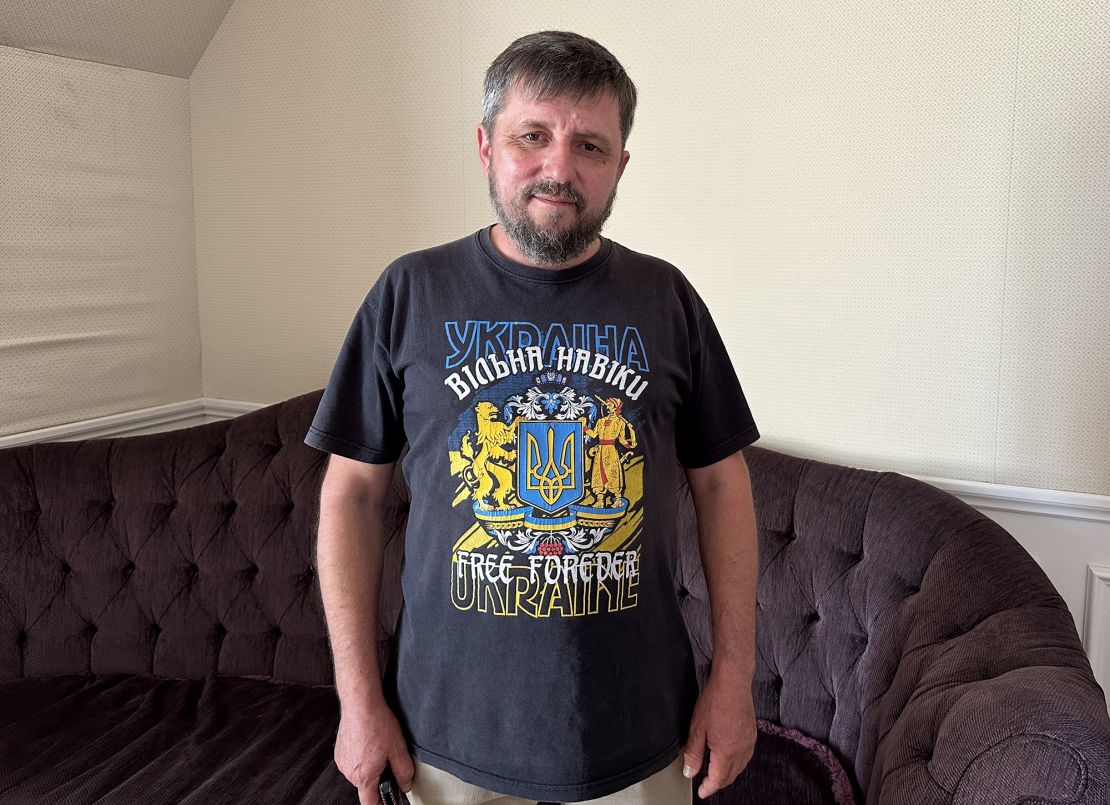
On March 30, 2022, he was detained by a group of masked men in civilian clothes, who told him and his parishioners that they were from the police. Chudynovych told CNN the men took him to a local administrative building where he said they stripped him naked, put a hood over his head, tied his hands behind his back and started beating him. “They twisted my arms and started clicking a gun near my head.”
Speaking to CNN more than two years later, Chudynovych was still struggling to recover from the ordeal. He said the interrogators were pressuring him into cooperating and revealing the details of Ukrainian resistance groups in Kherson, threatening his wife and children.
“They gave me a baton to touch and said that they were going to shove this baton in my a***. When they pressed it against my anus and started to push it in, one of them said: ‘Will you sign a document that you agree to work for us?’” he told CNN.
A few days after he was released, Chudynovych managed to escape from Kherson to Bashtanka, a town still under Ukrainian control, where he told officials he was forced to sign a document under pressure.
The Kherson Prosecutor’s Office confirmed Chudynovych’s account of what happened to CNN, saying he is officially considered a victim of Russian torture.
‘American spies’
Moscow has been cracking down on all non-Russian churches in occupied Ukraine, but Protestant and Evangelical groups have often been among the first to be banned. Many have links with American congregations and US-based Ukrainian and Russian diaspora.
Bodyu, who is a dual citizen of Ukraine and the United States, said Russia’s persecution of Protestants and Evangelicals goes way back.
“If you had contact with churches outside of Soviet Union, you were (considered) a spy. That’s what they believe and there is no point in trying to explain that it’s not that way,” he told CNN, adding that when he denied being a spy, the FSB officials who interrogated him suggested the US was taking advantage of him without his knowledge.
The persecution of Evangelical Protestants has hit close to home for some in the US – including House Speaker Mike Johnson, himself an Evangelical, who was successfully lobbied by, among others, Evangelical groups over US funding for Ukraine.
Reverend Mykhailo Brytsyn, head of the Grace Church, once a 600-strong Evangelical congregation in Melitopol, told CNN he was also accused of working for the US when detained by Russian officials.
“They said we were like cancer, they called us sectarians and said we were all American spies,” he said.
“They wanted us to take their side. They were preparing for a referendum (on joining Russia) and they tried to blackmail us. They said we would be allowed to continue as a church if we took their side. And we said no,” he added.
When Brytsyn refused, the Russian authorities closed the church down and gave him a warning: leave Melitopol or be taken away by force to the occupied capital city of Donetsk region.

No more prayers
Religious Ukrainians living under Russian occupation are facing the same choice as faith leaders: switch allegiance and join one of the Russian-approved churches, leave or go underground.
One man living in an occupied area of Ukraine told CNN he and others from his Evangelical church were determined to keep praying together after Russian troops invaded their city.
When the Russians took over their building, the congregation moved elsewhere, he said. When the occupying authorities began to impose restrictions on sermons, they started a home prayer group. “We prayed for Ukraine at the group meetings. And then the prayer leader was arrested,” he said. “So now there are no more prayers like that.”
CNN spoke with the man through his pastor, who was forced to leave the city. CNN is not publishing the man’s name or naming his city because of the dangers of speaking out. The whereabouts of the prayer group’s leader are still unknown, the pastor said. Several priests and other religious leaders who have stayed in occupied areas and continued preaching have been sentenced to years in prison by Russian authorities.
Grace Church in Melitopol was allowed to continue holding services for months after the occupation. But over the summer of 2022, churches in the city started being shut down and priests detained.
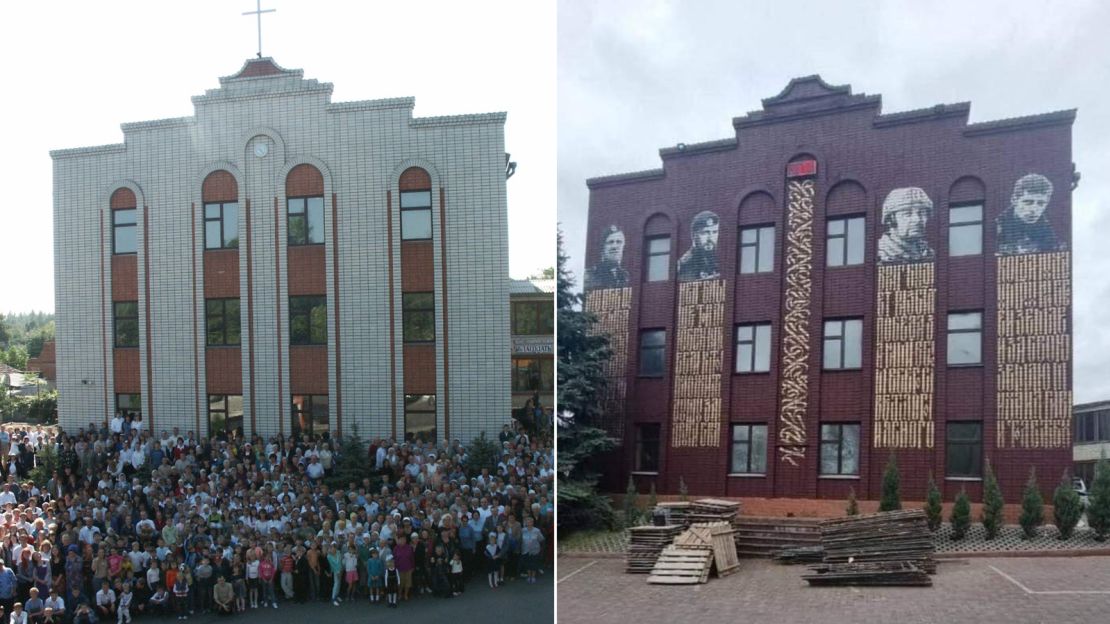
Ihor Ivashchuk, who was a pastor at Grace Church in Melitopol with Brystsyn, was conducting a Sunday service on September 11, 2022, when some 15 to 20 armed and masked people came in and ushered everyone into the back of the church. He said they searched the building and fingerprinted about 200 people, including many elderly parishioners.
While most people were let go, Ivashchuk said he was held for many hours, watching helplessly as the masked men ransacked the church.
“They kept asking me who controls us, they couldn’t understand that a church can be independent,” Ivashchuk told CNN in an interview in Kyiv. “They kept saying we are working for the Americans, that the Americans give us money and brainwash us and pay us to oppose Russia.”
The Grace Church, which was built by the congregation more than a century ago, was seized and turned into an administrative center by the Russian-installed authorities.
Both Brytsyn and Ivashchuk were forced to leave the city. Many of their parishioners have also left and are now dotted around Ukraine and the world. Those who remain worship in secret, only occasionally keeping in touch. It’s too dangerous for them to even try to log into the regular prayer meetings Brytsyn and Ivashchuk hold online.

Ivashchuk and his family are now living in a small flat in a Kyiv suburb, where he holds regular prayer meetings for the church members who also found refuge there, huddled around a dining table adorned with ceremonial wine and bread for communion.
“I could not imagine it would be possible to keep going. But you can have a church anywhere – even if it’s a bit improvised,” the pastor said.
CNN’s Katharina Krebs and Victoria Butenko contributed reporting.

